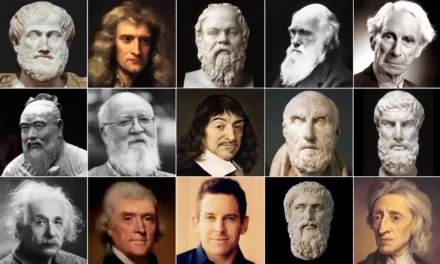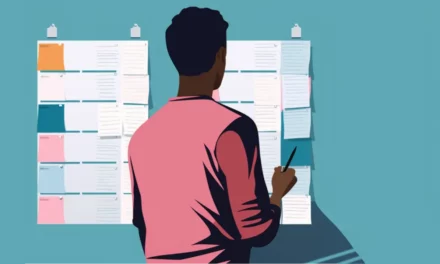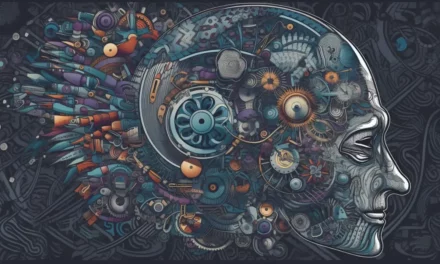
Why you must possess good reasoning skills
P
ossessing good reasoning skills will help you compose and support strong, logical arguments. This will have a direct benefit in how you communicate with your friends and family, as well as with your colleagues at work or school. Being able to express yourself well by making good, compelling arguments will be a key to your success. You may have great ideas, perhaps even brilliant ideas. You may have a very high IQ, or be highly educated. But if you cannot communicate these ideas well, if you cannot make good arguments, these ideas are not going to go anywhere.
And of course the other side of the coin is equally as important. You must know how to assess the validity of other people’s arguments. This is critical as well, because we are faced with arguments all the time, at home, at school, at work, everywhere and from anyone. But most people don’t know how to make strong, logical arguments, and so we are sometimes faced with a jumble of ideas. Other times we hear arguments that appear to be logical, but a little scrutiny reveals they are flawed. You need to be able to tell when the argument is not good because that’s how progress is made. This is equally as true in a science lab, in court, in the office, or in the bedroom.
Being able to express yourself well by making good, compelling arguments will be a key to your success.
Possessing good reasoning skills will make you more effective at solving problems. Many people equate critical thinking with problem solving, but problem solving is just one aspect of being a good thinker. But it’s a very important and extremely useful skill to have. I don’t need to tell you we are faced with problems all the time. Some are very big problems, some are every day, mundane problems. But oftentimes it’s not just the magnitude of the problem that may overwhelm us, but rather the fact that there are so many of them we need to face at the same time. This is why you must acquire strategies on how to solve problems: how to prioritize, how to break each down into components to make it more manageable, and even how to know which ones you can ignore.
Another opportunity for transformation you should explore is how to make more effective and logical decisions. It should come as no surprise to anyone that this skill is critical for a successful life. Indeed, a lot of the pain and misery in the world stems from the poor decisions people make: what causes or politicians to support, who to marry, what to eat, what job to take, how to educate your child, whether to discuss something that troubles you with your spouse or not, and even how to discuss it. Decisions are critical to absolutely everything we do. You must learn how to make better decisions.
A lot of the pain and misery in the world stems from the poor decisions people make.

GET BETTER AT MAKING GOOD ARGUMENTS!
Do you want to be able to tear apart a bad argument? Enter your information to get our FREE exercises so you can practice how to break a deductive argument into its components!
Another key area you need to develop is how to evaluate ideas and be more effective at coming up with new ones. This is a critical skill that will have positive and important ramification in your professional life. As artificial intelligence continues to improve and some menial jobs begin to be taken over by robots, we as human beings need to do what we excel at, that is, in being creative, in making leaps of imagination and ingenuity, and generally in coming up with new and better ideas all the time. Progress at all levels hinges on this. But even though ideas may seemingly appear out of thin air, in reality this is a skill that can be learned and practiced.

Another key area you need to develop is how to evaluate ideas and be more effective at coming up with new ones. This is a critical skill that will have positive and important ramification in your professional life.
It is our hope that improving the way we think will lead to better relations between people, to making better decisions, to having more and better ideas, and to more easily identify and discard bad ones. Becoming a proficient critical thinker will also help you to know what is real from what’s not, to know how to better argue your points, to know how to best answer a question or handle a situation, to recognize fallacious thinking in ourselves and in others, and to identify and remove bias from our own thinking. All these things are instrumental to achieve our goal of making the world a better place.
Now, clearly there are many aspects to this lofty goal, but there’s no doubt that we cannot make the world a better place just by legislating it, and certainly not by just wishing it. Obviously it’s not enough to make new institutions or pass new laws, if people don’t change. You cannot enforce good thinking. You cannot force people to be reasonable or fair-minded. You cannot impose rationality or eliminate irrationality by executive order. No, these things are possible and achievable, but they will happen only if people change. Real change has to be a bottom-up effort. It starts with us, as individuals. And people need to want to change, and so it’s important they see the benefits of doing so. People will change if it’s easy to do so and they see clear gains from doing so.

GET BETTER AT MAKING GOOD ARGUMENTS!
Do you want to be able to tear apart a bad argument? Enter your information to get our FREE exercises so you can practice how to break a deductive argument into its components!







0 Comments